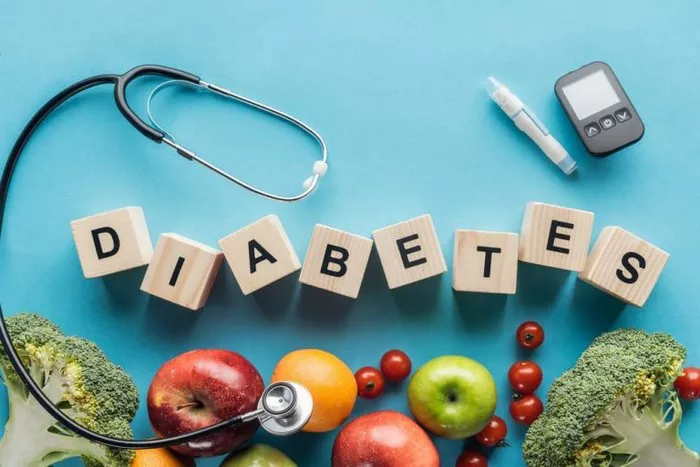Diabetes, a metabolic disorder characterized by elevated blood sugar levels, affects millions of individuals worldwide. Among its various manifestations, insulin resistance stands out as a key factor contributing to the development and progression of type 2 diabetes. In recent years, fasting has emerged as a potential strategy for managing insulin resistance and improving metabolic health. In this article, we will explore the relationship between fasting and insulin resistance, examining its mechanisms, benefits, research findings, duration, influencing factors, safety considerations, combined interventions, progress monitoring, long-term approach, and real-life success stories.
Insulin, a hormone produced by the pancreas, plays a crucial role in regulating blood sugar levels by facilitating the uptake of glucose into cells for energy production or storage. Insulin resistance occurs when cells become less responsive to insulin’s signals, leading to impaired glucose uptake and elevated blood sugar levels. Over time, the pancreas compensates by producing more insulin, resulting in hyperinsulinemia. Insulin resistance is associated with various metabolic abnormalities, including dyslipidemia, hypertension, and central obesity, collectively termed metabolic syndrome. Left unchecked, insulin resistance can progress to type 2 diabetes and increase the risk of cardiovascular disease and other complications.
Understanding Fasting
Fasting involves voluntarily abstaining from food and caloric beverages for a specified period. Different fasting methods exist, including intermittent fasting, where individuals alternate between periods of fasting and eating, prolonged fasting lasting several days, and time-restricted eating, limiting food intake to a specific window each day. Fasting triggers metabolic adaptations, including increased fat oxidation, enhanced autophagy (cellular self-cleaning process), and improved insulin sensitivity. These metabolic changes may confer various health benefits, including weight loss, improved metabolic health, and reduced inflammation.
Research on Fasting and Insulin Resistance
Numerous studies have investigated the effects of fasting on insulin resistance and metabolic health. Research suggests that fasting may improve insulin sensitivity by promoting cellular repair mechanisms, enhancing mitochondrial function, and modulating hormone levels. Clinical trials have demonstrated reductions in fasting blood glucose, insulin levels, and insulin resistance markers following fasting interventions. Additionally, intermittent fasting has been associated with improvements in cardiovascular risk factors, such as blood pressure, lipid profile, and inflammatory markers.
Duration of Fasting
The duration required to see improvements in insulin resistance with fasting can vary depending on individual factors such as baseline insulin sensitivity, overall health, dietary habits, and lifestyle factors. While some individuals may experience rapid improvements in insulin sensitivity with short-term fasting, others may require more prolonged fasting periods to achieve significant metabolic benefits. Consistency and adherence to fasting protocols are crucial for optimizing outcomes.
Factors Influencing Fasting Outcomes
Several factors influence the effectiveness of fasting in reversing insulin resistance, including the severity of insulin resistance, adherence to fasting protocols, nutritional status, physical activity levels, and genetic predisposition. Individuals with severe insulin resistance or underlying medical conditions may require supervised fasting under medical supervision to ensure safety and efficacy.
Safety Considerations
Before embarking on any fasting regimen, individuals should consult with a healthcare professional, especially those with pre-existing medical conditions or taking medications that affect blood sugar levels. Supervised fasting may be necessary for certain populations, such as pregnant or lactating women, individuals with eating disorders, or those with unstable medical conditions.
Combining Fasting with Other Lifestyle Interventions
Fasting can be synergistically combined with other lifestyle interventions known to improve insulin sensitivity, such as regular exercise, healthy eating habits, adequate sleep, stress management, and maintaining a healthy weight. These complementary interventions can enhance the metabolic benefits of fasting and promote long-term metabolic health.
Monitoring Progress
Individuals using fasting to reverse insulin resistance should monitor their progress regularly. Recommended methods for tracking metabolic health include measuring fasting blood glucose levels, insulin levels, glycated hemoglobin (HbA1c), lipid profile, and body composition changes. Regular medical check-ups and follow-ups are essential for assessing overall health and adjusting fasting protocols as needed.
Reversing insulin resistance is a gradual process that requires consistency and long-term commitment to healthy lifestyle habits. Fasting, if chosen as a strategy, should be integrated into a sustainable and balanced approach to health and wellness. Individuals are encouraged to focus on making sustainable lifestyle changes rather than seeking quick fixes.
Real-life examples of individuals who have successfully used fasting to improve insulin sensitivity and reverse insulin resistance can provide valuable insights and inspiration. These case studies illustrate the potential effectiveness of fasting in achieving metabolic health goals and overcoming insulin resistance.
Conclusion
Fasting represents a promising strategy for managing insulin resistance and improving metabolic health. By understanding the mechanisms, benefits, and practical considerations associated with fasting, individuals can harness its potential to optimize their health and well-being. However, it is essential to approach fasting with caution, considering individual needs, safety considerations, and long-term sustainability. With proper guidance and a holistic approach to health, fasting can be a valuable tool in the management of insulin resistance and metabolic disorders.
Related Topics:
How To Increase Insulin Resistance?

























